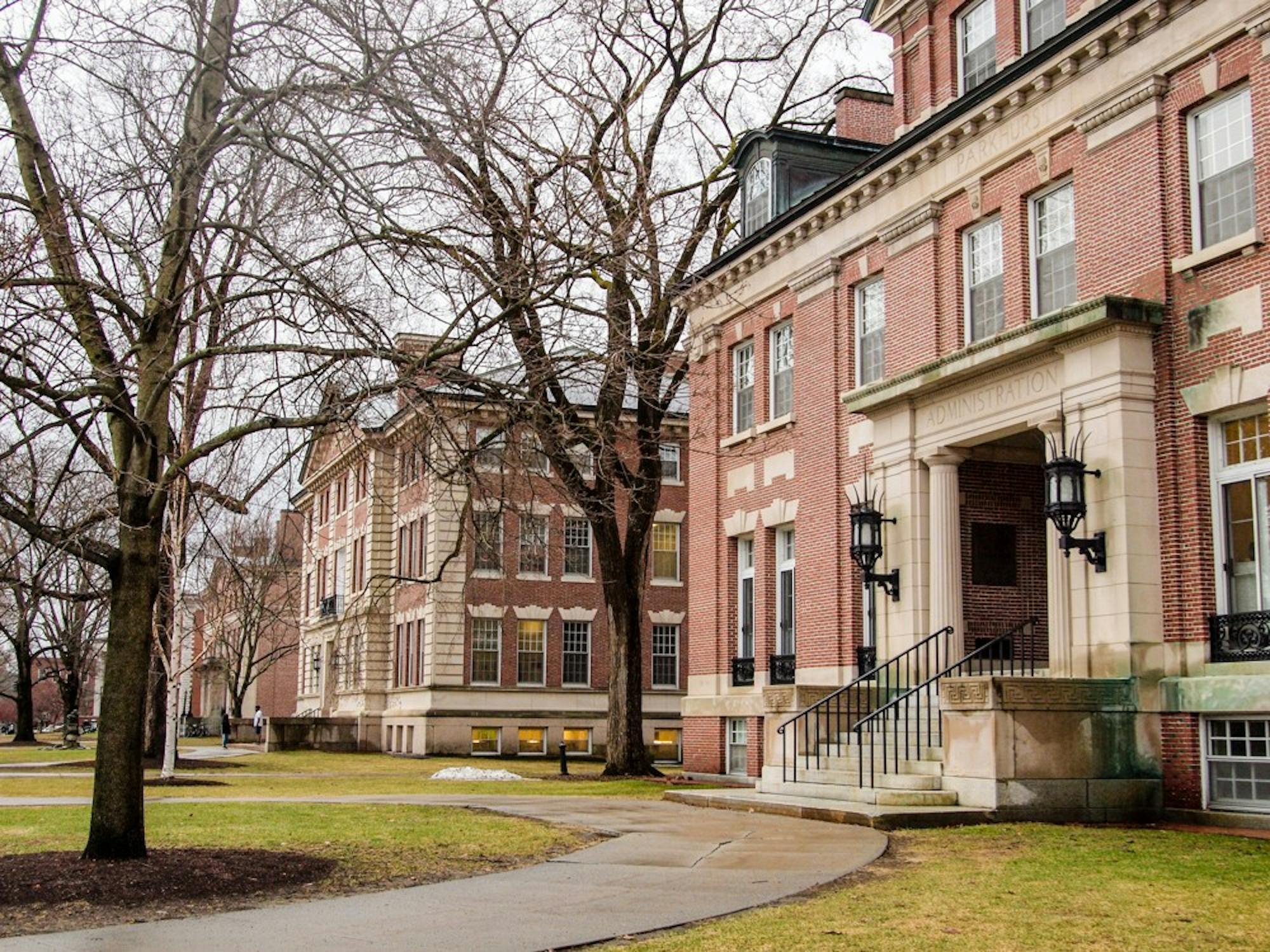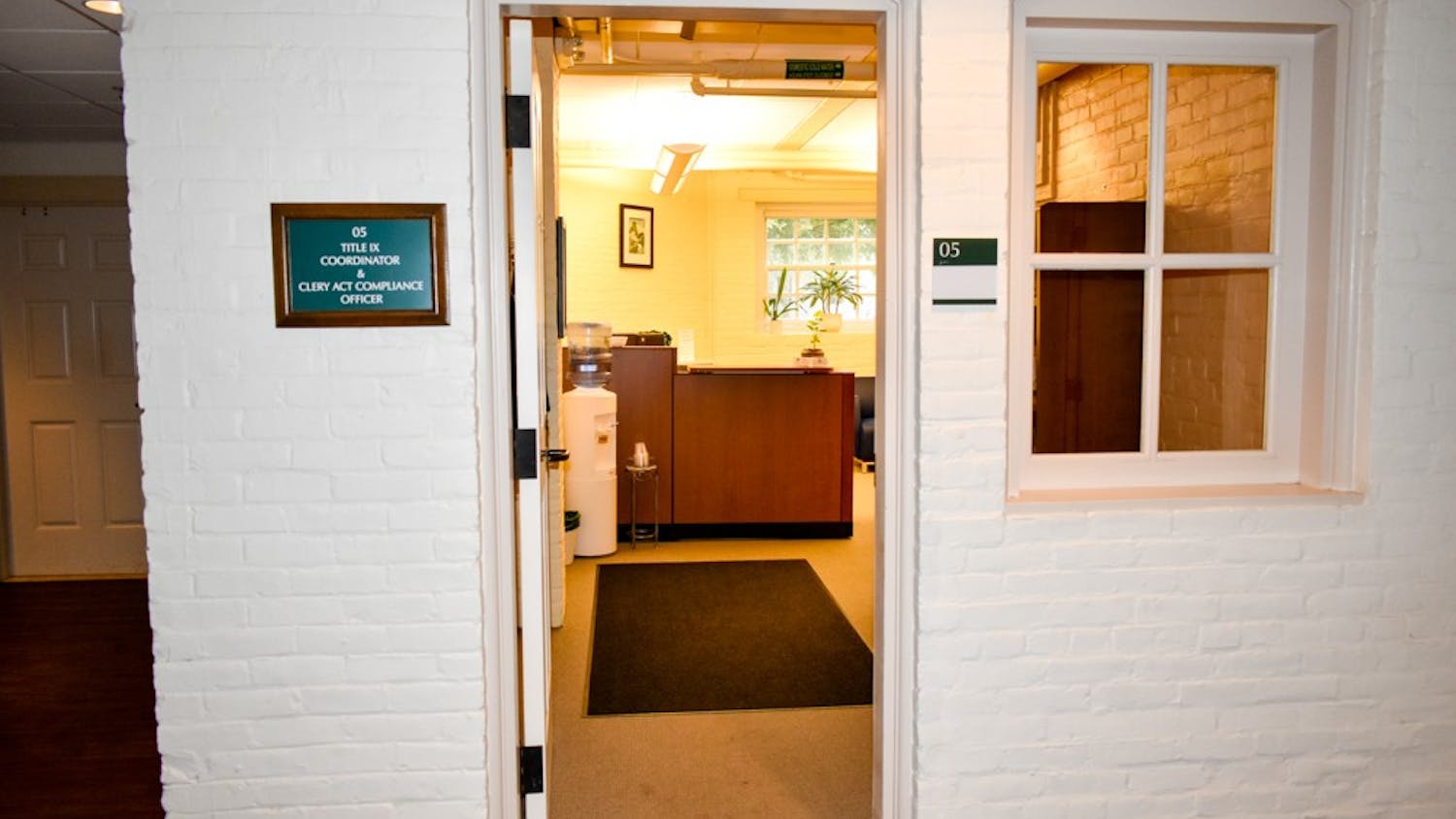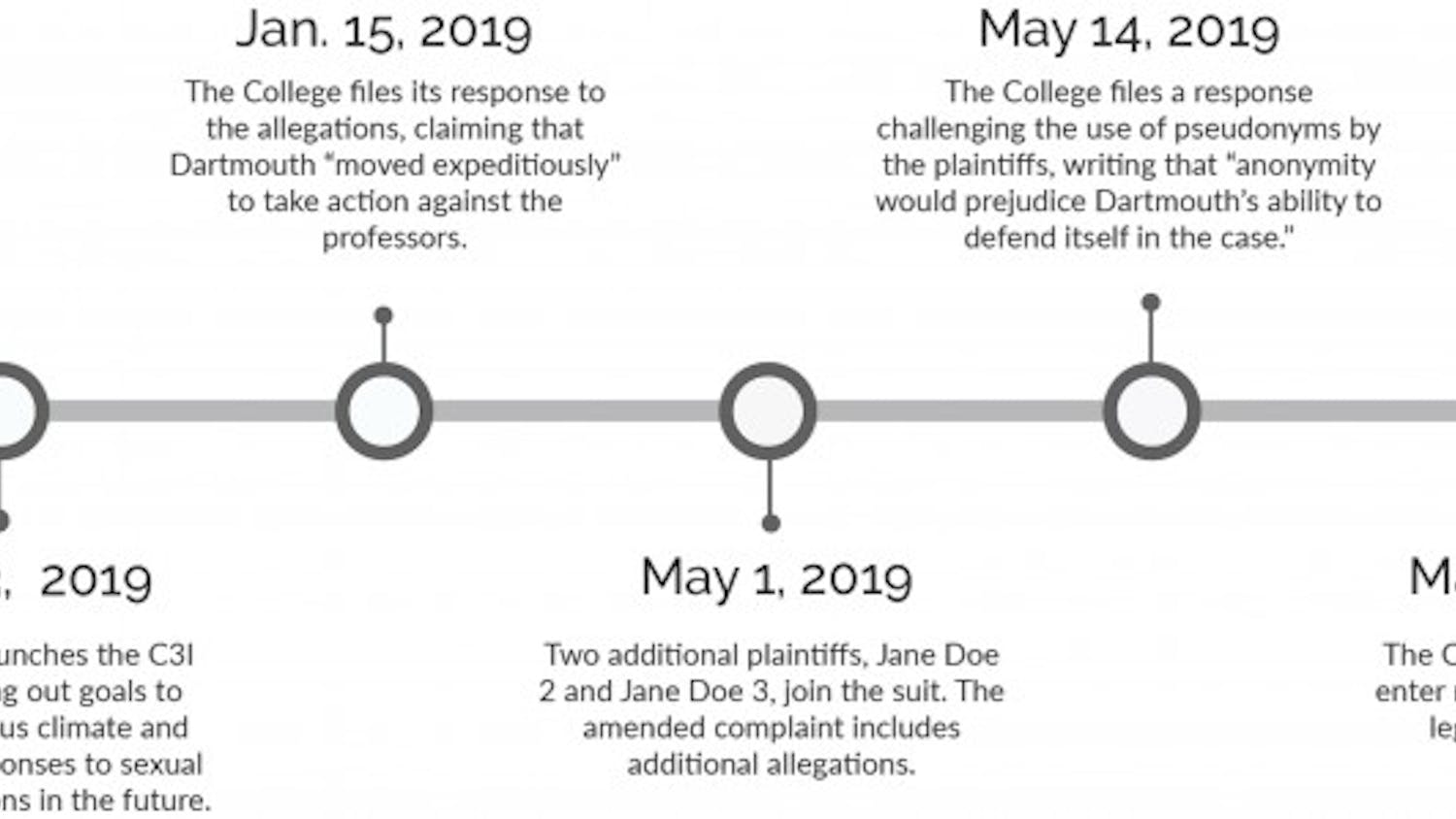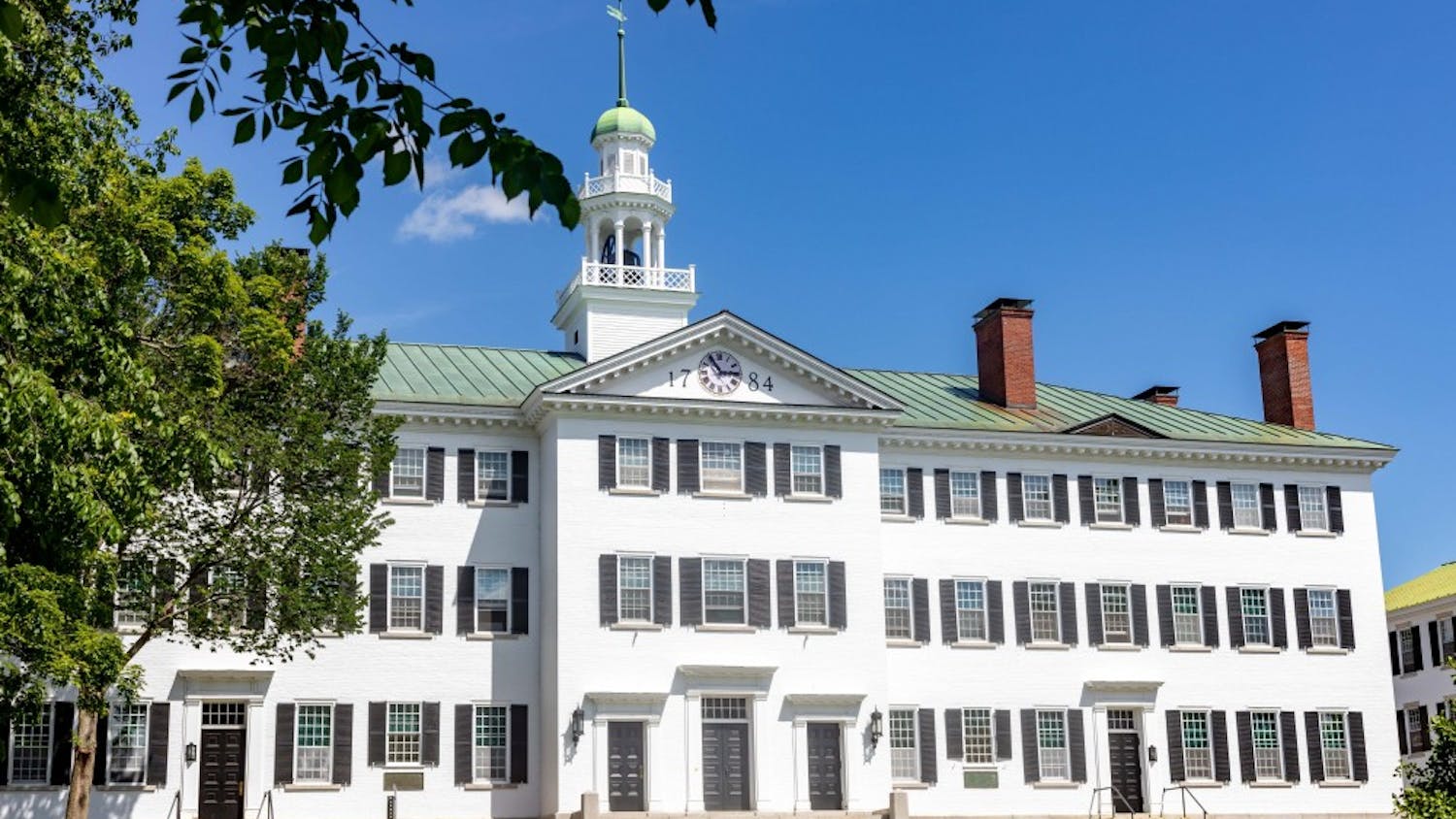With the $14 million settlement of a federal class action lawsuit accusing the College of failing for years to act on allegations of sexual misconduct against three former psychological and brain sciences professors pending court approval, the lawsuit has spurred a number of both direct and indirect changes on campus to prevent similar incidents in the future.
In the settlement agreement, the College explicitly agreed to bolster a variety of efforts to prevent future misconduct. For faculty members, Dartmouth has committed to expand the use of the provost’s diversity recruitment fund to support the hiring of faculty who have experience in gender-based discrimination and violence. The College also pledged to add two additional members to the Campus Climate and Culture Initiative’s eternal advisory committee who have no connection to Dartmouth. The settlement also stipulated that members of the committee will also participate in a meeting with the plaintiffs so that they can recommend strategies and resources that are relevant to the C3I.
Additionally, the settlement reaffirms Dartmouth’s support for WISE, an Upper Valley organization committed to ending gender-based violence. The settlement includes the consideration of adding additional WISE staff on campus or providing $500,000 to the organization over the course of five years.
In an interview with The Dartmouth, provost Joseph Helble commented on the efforts undertaken by the College.
In terms of indirect changes — in the wake of the lawsuit — in January, the College introduced C3I, which aims to, according to its stated purposes and goals, “create a more welcoming, inclusive, and equitable learning environment for all Dartmouth students, faculty, and staff.”
According to Helble, although C3I did not come as a direct response to the lawsuit, it was informed by “the behavior of the three professors that came to light before the lawsuit was filed,” as well as a report on sexual misconduct by a presidential steering committee and a report on sexual harassment of women by the National Academy of Sciences, Engineering and Medicine.
“The C3I is a whole series of actions that were taken as a campus that were meant to try and build a supporting environment where absolutely every student here is challenged, engaged and supported in their work, and the kind of behaviors that the lawsuit brought to light do not happen, or if they do, they are reported quickly, and we’re in a position to take action quickly,” Helble said.
One change intended to help achieve the goals and recommendations of C3I included the creation of a new, unified sexual misconduct policy intended to clarify the College’s response to sexual misconduct that occurs within the Dartmouth community.
“The sexual misconduct policy was really meant to bring clarity to both policy and process,” Helble said. “To have a single policy that applies to every member of the Dartmouth community: faculty, staff, students and visitors alike.”
The new policy includes a number of reforms, including the right of both parties to respond to questions posed by hearing panel and trained investigator, though the policy does not include a “live hearing.” The new policy was voted on and unanimously approved by the four faculties of the College before going into effect.
In addition to the new sexual misconduct policy, the College launched the Sexual Violence Prevention Project First-Year Experience. While SVPP itself was introduced in 2015 as a part of College President Phil Hanlon’s Moving Dartmouth Forward initiative, the Class of 2023 was the first to experience the new first-year programming. The first-year experience program includes required online sexual violence prevention courses over the summer as well as workshops about healthy relationships and campus resources during the term. Additional sophomore, junior and senior programming is currently undergoing development and will eventually culminate into SVPP’s overarching goal of a four-year experience.
“SVPP is, of course, about training and prevention and helping all members of the community, but students in particular, be aware and advocates for one another in support of one another,” Helble said.
Though the final details will only be made available once the court approves the settlement, the College also pledged to increase its funding for WISE, an Upper Valley organization geared toward gender-based violence prevention and survivor advocacy.
“They provide a very important role in the Upper Valley community and a very important service to the campus,” Helble said. “Once the settlement is finalized, then we will move forward with the conversations that need to take place to make this assessment and provide the resources that they need.”
WISE communications and development director Betsy Kohl declined to comment about the details of the settlement until the court approves the settlement.
While the College has taken many steps toward achieving the objectives of C3I, student and presidential committee on sexual assault executive chair Anne Pinkney ’20 explained that “there’s still a long way to go” to eliminate sexual violence and change campus culture.
“While we recognize that the College has reacted in certain ways to try to improve campus climate, we feel that the lawsuit should not be celebrated as something that is monumentally and fundamentally positive for changing Dartmouth overall,” Pinkney said. “Instead, it should be taken more at face value as what it is, which is a series of very violent occurrences that were enabled not only by the actions of individuals, but the culture of Dartmouth as a whole.”
To monitor the progress of these actions and initiatives and how they further the goals of C3I, the College has implemented an external advisory committee that will deliver annual reports to the Board of Trustees.
“Having open conversation and dialogue around these challenges and the issue of sexual misconduct and sexual assault is a hugely important part of the community moving forward and reducing and eventually eliminating sexual misconduct and sexual assault,” Helble said. “So I think the fact that we have changed our policy and our processes and the fact that we’re speaking about it much more openly, I think that is a hugely important step.”
The settlement for the PBS lawsuit is still under consideration by federal judge Landya McCafferty, who has expressed concern that the proposed settlement class is “too broad.” Last week, the plaintiffs submitted a briefing in support of approval for the proposed class settlement.




